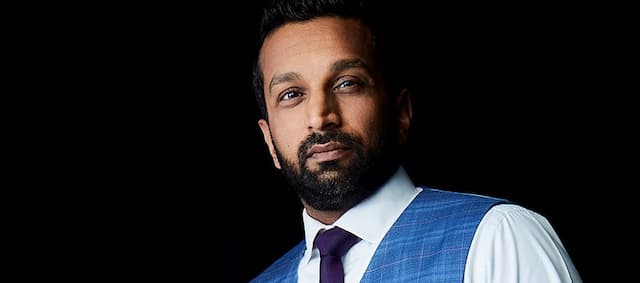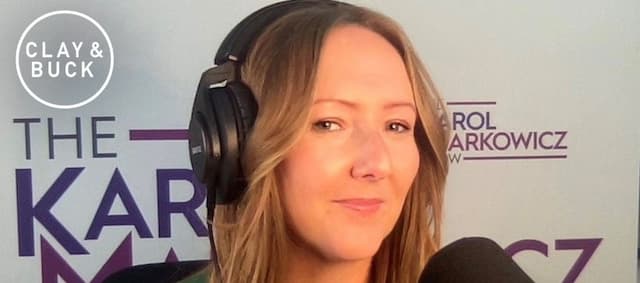Dr. Marty Makary on the Mistakes the Covid Experts Made
CLAY: We are joined now as we roll through the first hour of the Wednesday edition of the program by Dr. Marty Makary of Johns Hopkins University. He’s the author of The Price We Pay. He also has got a grace piece up: 10 Biggest Covid Mistakes: Americans Deserve an Apology from the Medical Experts. It’s linked at ClayandBuck.com, and FoxNews.com. You can check it out there. Dr. Makary, appreciate you joining us. I read your piece this morning. Really well done.
What is your take on — we said we were gonna talk about it in a little bit, but the Senate actually voted on mask mandates on airplanes, and Mitt Romney was the only Republican. I believe there were eight different Democratic senators, many of them in tight reelection races, that also voted, 57 total, to do away with the airplane mandates. Why in the world does that mandate still exist? Is it totally and completely illogical?
DR. MAKARY: I think it is. I think that we have now the data that we should have gotten on day one of the pandemic on cloth masks. And really what protects people is the ventilation in the airplane, and some people just don’t want to accept that, and if you want to wear a mask forever for the rest of your life, then you’ll say we need to wear masks now because we’re at about the lowest numbers we’re going to be.
We’re going to fester at these low numbers off and on forever. People are getting depressed. They’re sad when they’re wearing a mask. We’re losing the human connection. And we just got data that the isolation that the pandemic has promoted has increased the rates of heart disease and stroke by 30% and increased dementia by 50%. So we gotta accept a little bit of risk on covid to try to alleviate the harm we’re seeing outside of covid.
 BUCK: Listen, Dr. Makary, can you just hit that again? ‘Cause I hadn’t seen or heard that. I think people really do need to hear this. We’ve seen what percent increases in heart attack and stroke during the pandemic?
BUCK: Listen, Dr. Makary, can you just hit that again? ‘Cause I hadn’t seen or heard that. I think people really do need to hear this. We’ve seen what percent increases in heart attack and stroke during the pandemic?
DR. MAKARY: Yeah. So this is a study, ironically, data that came from the CDC; so just recognize the real numbers may be twice as high, but they reported that the effect of isolation during the pandemic resulted in a 29% increase in heart disease, 32% increase in stroke, and a 50% increase in dementia. People are losing their minds.
BUCK: So locking people away is dramatically increasing their possibility of death from a whole range of factors? That is from the CDC’s own data?
DR. MAKARY: That’s right. And it’s something that scientists are not honest about is that we’ve lost about a hundred thousand Americans a year above what we normally lose in our death tolls because noncovid mortality, what we call excess noncovid deaths. Nobody’s talking about that. That is something that you don’t see in Sweden which, by the way, all in all has a far lower fatality rate per capita than the United States.
BUCK: Dr. Marty Makary. Dr. Makary, I also want to know what you think when you hear the CEO of Pfizer, Bourla, say that they’re calling for emergency authorization for a fourth shot, meaning the second booster shot, and even Fauci now says, yeah, it might have to be shots forever. I mean, are these people just utterly shameless? Because I remember when even last summer when people like me and Clay and others were saying, guys, it’s gonna be shots for every year for the rest of your life if they get their way with it. I mean, do you feel like there’s any contrition from within the medical community, the people that push this kind of stuff and now have realized it wasn’t what they said it would be?
DR. MAKARY: Well, a lot of doctors are frustrated that a company executive now is basically taking the functional role as the director of the United States CDC. And Dr. Fauci and Dr. Walensky are playing passive. We started to see that when Omicron came about in South Africa, Walensky and Fauci, the NIH, all took a very passive role, and the companies did the experiments, not the United States laboratories and the government, the companies, the pharma industry did the experiments and said, we have data telling you that you should get another shot, and they just parroted — without seeing the underlying data — just repeated that. A lot of people are frustrated, and I think if it were up to the shareholders of Pfizer we might be getting a shot every Monday morning when we show up to work.
CLAY: Dr. Makary, in your 10 things that we got wrong, meaning the public health experts, what do you think was the biggest failure? When I read your list, to me it’s shutting down the schools. Was there a bigger failure, in your mind, than that?
DR. MAKARY: Well, I’ll tell you one that’s just close to my heart, because I’m a surgeon who has been with people at the end of life at the bedside in the ICU, and the way that we shut out loved ones from saying good-bye to their family members was a human rights violation that spanned most of the pandemic and all the hospitals were complicit as the establishment did nothing. That was one of the most cruel practices this country inflicted on its own citizens.
 BUCK: Dr. Makary, are you having more and more people from within the medical community reach out to you. It’s at this point even more important I would think than them saying “you’re right” is saying that they will not allow this to happen again, they recognize that masking up between bites on airplanes is a moronic, anti-scientific policy that was instituted, that masking up children in schools was an idiotic, unscientific policy that was really child abuse on a massive scale. Are there other doctors — there were not a lot of you, MDs with real credentials who would come forward and speak obvious truths. Are you gonna be the lone man shouting from the mountaintop the next time, Doc, or are there gonna be others standings alongside you?
BUCK: Dr. Makary, are you having more and more people from within the medical community reach out to you. It’s at this point even more important I would think than them saying “you’re right” is saying that they will not allow this to happen again, they recognize that masking up between bites on airplanes is a moronic, anti-scientific policy that was instituted, that masking up children in schools was an idiotic, unscientific policy that was really child abuse on a massive scale. Are there other doctors — there were not a lot of you, MDs with real credentials who would come forward and speak obvious truths. Are you gonna be the lone man shouting from the mountaintop the next time, Doc, or are there gonna be others standings alongside you?
DR. MAKARY: I think a lot of other doctors now feel empowered. They’ve seen that they’ve gotta speak up. You know, I got a lot of secret praise from doctors around the country, and a bunch of us who spoke up did. We took a big risk because universities and medical societies, journals bully and threaten people who speak up about their opinion different from the establishment. But we’re all proud of our medical profession, and we’re seeing our credibility now in the toilet, and that’s why doctors are speaking up now and they’re coming around.
CLAY: I’m reading right now the Washington Post, Dr. Makary. They have a headline: A Covid Surge in Western Europe as U.S. Bracing for Another Wave. Right now obviously the numbers are down quite low in the United States as the Omicron variant seems to have burned out. Do you expect to see these continuing waves in the future, maybe even this one connected to Western Europe? There has oftentimes been a connection between what happens in Western Europe and what happens in the United States.
DR. MAKARY: Yeah, the U.K. has been a pretty reliable preview of what we can expect. And what they’re seeing is an uptick. I wouldn’t call it a wave. I don’t think it’s going to be a wave. What they’re seeing is that the BA2 sort of second variant version of Omicron, is causing some infection out there, even in people who had Omicron in the past. And so what they’re noticing is an uptick especially in the southern region where the vaccination rates in older people — those vaccines may not be holding up very well. I think we’re gonna see ebbs and flows for a long time. And I can guarantee you covid’s gonna take a bump-up in the fall because it’s now one of the regular respiratory viruses we’re gonna see every winter, every viral season.
BUCK: Dr. Makary, are you confident that we believe never go — and when I say “we,” I mean anywhere, including places like New York, Los Angeles — we will not go back into lockdown again? Is that — is there a consequences even if it’s a quiet one on lockdowns were disastrous with little to no benefit?
DR. MAKARY: Unfortunately, I don’t think there’s a consensus. I mean, look at the study out of Hopkins on lockdowns. It was very elegant, very sophisticated, my colleagues did it. And it was basically blown off by a part of the country that didn’t want to hear it. Here we had the largest public health intervention in human history, that is the lockdowns. And people are not even interested in studying the impact of it. There’s probably no better comparison than comparing Sweden and Michigan, identical in population, identical in their age and age distribution, yet Sweden had double the deaths of Michigan. We’ve gotta learn our lessons, and unfortunately I think some parts of the country are not interested in the data.
 CLAY: Dr. Makary, what would you tell us we should know? For everybody out there who is following the storylines, what’s next? I mean, we’re right now, today is the anniversary of “15 days to slow the spread.” It’s now been 730 days, two full years since “15 days to slow the spread.” What’s next? How does this continue?
CLAY: Dr. Makary, what would you tell us we should know? For everybody out there who is following the storylines, what’s next? I mean, we’re right now, today is the anniversary of “15 days to slow the spread.” It’s now been 730 days, two full years since “15 days to slow the spread.” What’s next? How does this continue?
DR. MAKARY: Well, I think the thing that we’ve never accepted as a country that we still need to accept is that there’s a 1,000- to 10,000-fold difference in the risk to people who are vulnerable and older versus people who are younger and healthier. We’ve never talked about obesity as a risk factor. We’ve gotta get people active, healthy, we’ve gotta talk about food as medicine, and we’ve got to start recognizing risk cannot be eliminated. We’ve gotta learn to live with it because it’s gonna be here forever, which means every viral season we’re gonna see a bump-up. You gotta use common sense precautions. If you’re sick, stay home. If you’ve been exposed, stay your distance. And if you’re around someone vulnerable, be careful. That’s true of all respiratory pathogens. At this point, influenza is as or more dangerous than covid, according to the new Financial Times analysis that just came out. We’ve gotta learn to live with all these viral pathogens.
BUCK: Dr. Marty Makary of Johns Hopkins University Medical Center, author of The Price We Pay, he’s got a piece up at ClayandBuck.com, 10 Biggest Covid Mistakes: Americans Deserve an Apology from the Medical Experts. Dr. Makary, always appreciate the expertise, sir. Thank you.
DR. MAKARY: Great to be with you guys. Thanks.





